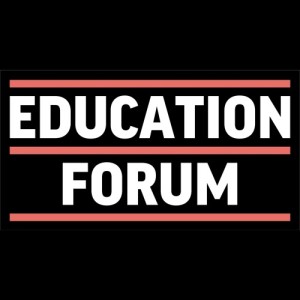Thursday Dec 02, 2021
#EducationForum: Teaching white privilege: making schools less racist or more divided?

Recording of the Academy of Ideas Education Forum discussion on Monday 29 November 2021.
INTRODUCTION
How should we view the teaching of ‘white privilege’? Is it a helpful tool in combating racial inequality or a divisive idea that sows mistrust?
The concept originated in American academia in the 1980s, but entered British schools last year in the wake of the Black Lives Matter protests following the death of George Floyd.
White privilege asserts that white people are automatically advantaged by their skin colour, because they do not have to endure lives beset by racialised systemic discrimination. The fact that black people are more likely to be paid less, sectioned under mental-health rules, or stopped and searched by police is cited as evidence of white privilege at work by advocates of the theory.
Yet opponents of the concept say this reading of the data fans the flames of an unnecessary culture war. They counter-claim that those least likely to go to university, for example, are poor white teenagers in former industrial and coastal towns. White working-class children also trail their Indian, Chinese, Bangladeshi and Black African peers In GCSE attainment, they argue.
To what extent, then, does white privilege help or hinder us in understanding how pupils might make the best progress in education?
Teaching white privilege as an uncontested fact in schools is indoctrination and illegal under the 1996 Education Act, according to the women and equalities minister, Kemi Badenoch. Her pronouncement has prompted the Black Educators Alliance and the Coalition of Anti Racist Educators to accuse the government of censorship and chilling free speech in the classroom.
On the other side of the debate, the campaign group Don’t Divide Us claims it is inundated with concerns from teachers and parents. It says the former fear being publicly accused of racism if they speak out against teaching white privilege, while the latter describe having to list their privileges and unconscious bias in their children’s homework.
In the United States, opposition to the teaching of white privilege was seen as an important factor in Republican Glenn Youngkin taking the key governorship of Virginia from the Democrats recently. The result has been widely interpreted as a bellwether of wider public rejection of the kind of educational social-justice programme proposed by the Democrats, which favours schools adopting the principles of ‘critical race theory’, such as countering the effects of white privilege.
So how should we judge the focus on white privilege and unconscious racial bias in lessons, reading lists and school staff training? Will it make schools more anti-racist – or divided?
The Education Forum explores this important issue in a friendly, open and respectful panel discussion. Are the majority of parents and teachers unaware of the term ‘white privilege’ and not likely to give it a second thought? Or is white privilege in the curriculum about to become the next big issue in education?
SPEAKERS
Alka Sehgal Cuthbert
Education Forum member; co-ordinator, Don’t Divide Us (DDU); educational advisor and writer. Alka is critical of the term ‘white privilege’ and thinks it does more harm than good.
Andre Ediagbonya-Davies
Andre went to school in Tottenham and is a second-year historian at Corpus Christi College, Cambridge. He supports expanded discussion on race within education. He believes white privilege is a reality and talking about it is a useful way of helping combat racism.
Julie Dupont
Julie is a North London parent of three school-age children. She is a committed anti-racist, but is concerned at the way white privilege is communicated in some of her children’s lessons and homework, and in school communications to parents. She thinks it is divisive and does more harm than good.
No comments yet. Be the first to say something!